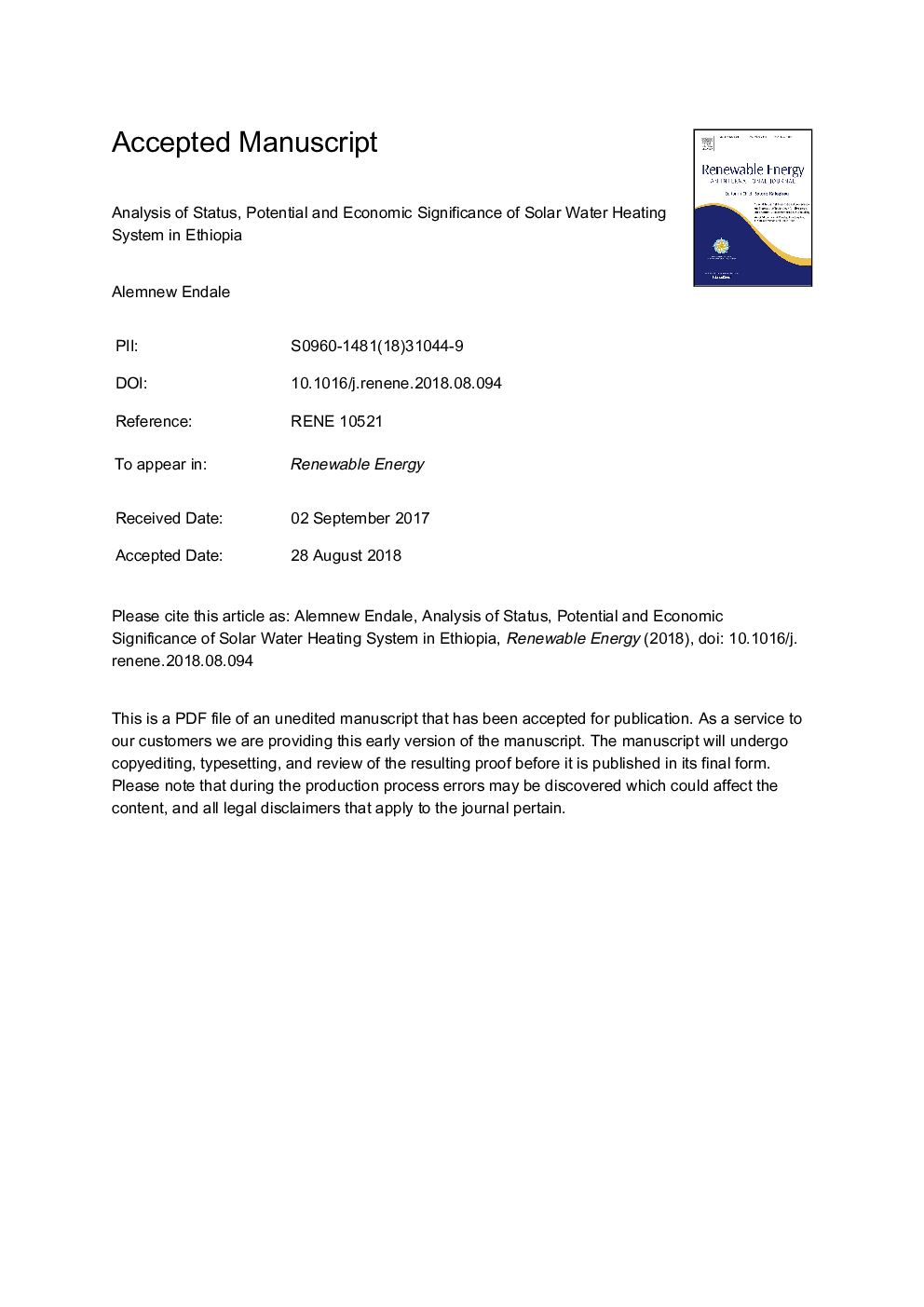| Article ID | Journal | Published Year | Pages | File Type |
|---|---|---|---|---|
| 11001215 | Renewable Energy | 2019 | 23 Pages |
Abstract
Dependence on imported oils, unmet electric energy demand and unsustainable consumption of forestry resources for water heating are the greatest problems in Ethiopia. In this study the economic potential saving of these energy sources in future through solar water heaters (SWHs) is presented. The System Advisor Model (SAM) and Long-range Energy Alternatives Planning System (LEAP) are used for analysis in the study. It is estimated that 5.474 million m2 flat plate collector (FPC) areas can save 47,730 tonne kerosene, 45,001 tonne diesel, 1480â¯GWh of electric energy and 1,698,116 tonne firewood in 2025. The amount that can be saved equals to 5% of the industry diesel demand, 50% of urban households' kerosene demand and 50% of urban households' and commercial sectors' electricity and firewood demand for hot water production. The energy saving through SWHs is analyzed considering the useful energy output at end use devices. The estimated 1480â¯GWh of electric energy saving is equivalent to 2.211 million m2 FPC gross areas. This energy equals to an installed power generation capacity of 691â¯MW wind, 429â¯MW hydropower or 1045â¯MW grid connected PV including a corresponding minimum added investment capital of 533.96 million USD, 1237.4 million USD and 1908.4 million USD.
Related Topics
Physical Sciences and Engineering
Energy
Renewable Energy, Sustainability and the Environment
Authors
Alemnew Endale,
